This three-day symposium explored alternative models of education and knowledge production in times of political challenges and socially critical conditions, with a particular focus on Iran. Challenging the constraints of formal education systems, the event investigated the potential of independent institutions, curatorial practices, and artistic research as critical pedagogical tools and sites of resistance. Topics included revolutionary and feminist approaches to learning; the role of collective and community-based practices in generating knowledge; the pitfalls of “presentism” in contemporary art discourse; and the current crisis of curating as both a practice and an institutional framework. Through presentations, discussions, film screenings, and a book launch, the symposium brought together an international group of practitioners, scholars, artists, and educators to reflect on the potential of discursive, socially engaged, and context-responsive approaches to learning.
In this regard, Fereshte Moosavi, curator of the Tehran Curatorial Symposium, invited practitioners, researchers, and educators to share their perspectives through talks and discussions.
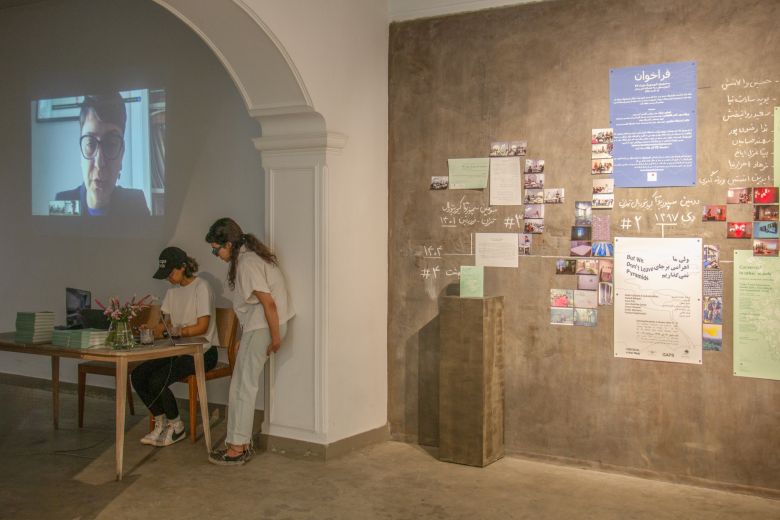
The symposium opened with curator and educator Fereshte Moosavi’s introduction Making Curating Think: Theories in Action, Practices in Dialogue that proposed to rethink learning as a critical, collective, and transformative act in a moment defined by systemic collapse, political unrest, and the failure of formal education to respond to urgent social realities.
This was followed by the founder and director of Shamseh Academy in Tehran, Mehdi Ansari’s critique of The Fallacy of Presentism: A Critical Inquiry into the Interpretation and Pedagogy of Art. He defined it as the tendency to view history as a narrative of loss, mixed with the never-ending political entanglement between art and truth. Mehdi reminded us that art exists with a geometry of power, producing knowledge and intervention.
The screening of Mina Keshavarz’s documentary The Art of Living in Danger (2020) blends feminism, memory, and activism. It showcases the story of her grandmother’s life and suicide; an outcome of domestic violence and forced marriage in Iran. The film follows a campaign by women lawyers and activists fighting to criminalize domestic violence, using workshops, discussions, and legal advocacy as tools for resistance. Through merging storytelling and civic actions, the documentary successfully expands education models, where personal history and activism go hand in hand. After all, feminist pedagogy and political struggle foster change for our coming generations.
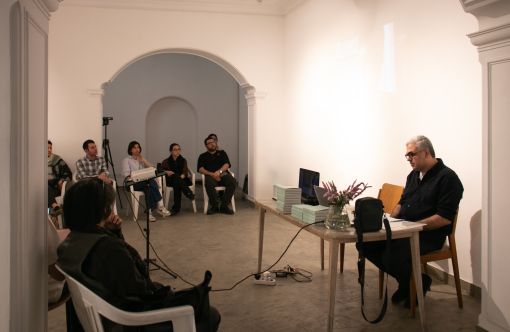
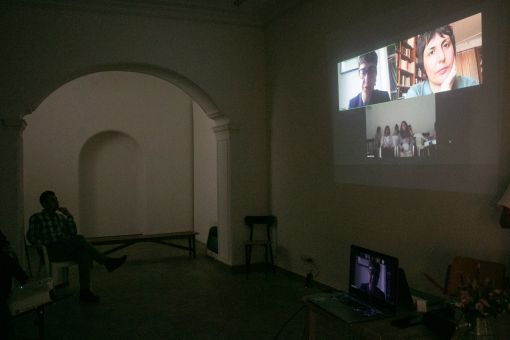
Rooted in Marxist dialectics, Shahrazad Mojab ’s take on Learning, Art, and Critical Consciousness in the Process of Revolutionary Change explored critical learning as a transformative and revolutionary tool. Mojab redefined being critical as a process of deep and transformative engagement with social contradictions. Here, classrooms should be reimagined as pieces of resistance where learners uncover and analyse the conditions of capitalist imperialism systems. For Mojab, critical education is not just theoretical; it is historical and revolutionary.
The launch of The Curatorial, in Other Words. First Volume: Context, Theoretical Expansions and Concerns (Charsoo Honar Publishing, 2025), wrapped up the first day. The book came into being through many years of slow and careful work. It is not just a collection of essays, but a curatorial proposition in itself — an attempt to hold space for thinking, questioning, and making sense of the curatorial, through lived practice. The conversation between the editor Fereshte Moosavi, Saeed Ravanbakhsh of Charsoon Publishing, and contributor Elham Puriya Mehr shared key aspects of the publication, highlighting the significance of critically reflecting on contemporary curatorial practices. The beautiful yet long journey of weaving together conversations, tensions, and affinities, many of which echoed strongly throughout the symposium, shaped this outcome.
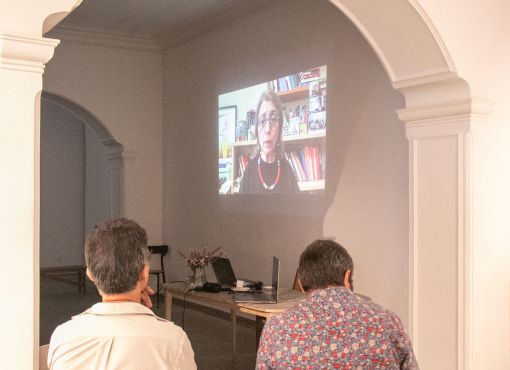
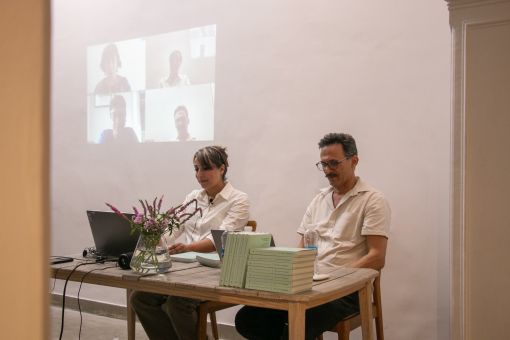
The subsequent day focused on special and poetic practices. Curator and lecturer Elham Puriya Mehr invited participants in her talk Social Spaces as an Atmosphere of Knowledge Making, to explore urban space as a site of learning. Drawing on Marcel Lefebvre and Giorgio Agamben, she argued that urban infrastructures, often overlooked, serve as atmospheres for knowledge production.
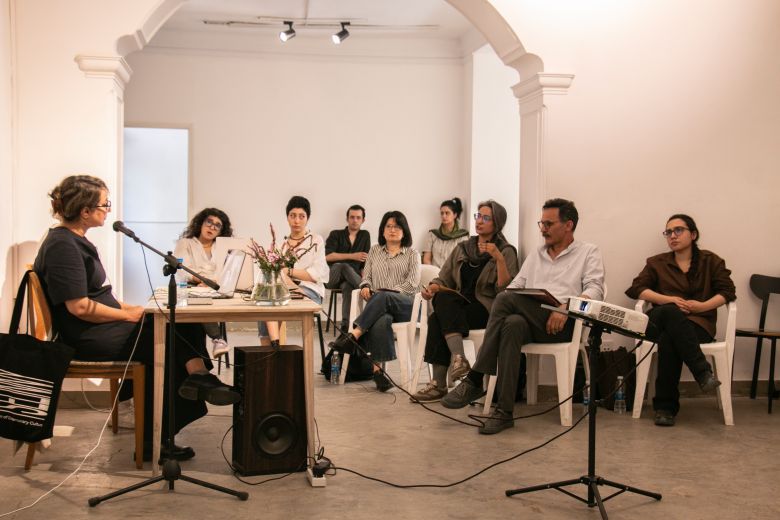
Viviana Checchia, director of Void Art Centre, Derry, and co-director of Vessel, Bari, then shared insights from her two-decade-long curatorial journey. She highlighted the concept that our ways of knowing are rooted in specific cultural and political contexts, while challenging the dominance of Northern curatorial paradigms and urging a shift and focus from the “what” to the “how” of curatorial engagement.
To conclude the day, art historian Hannah Jacobi shared a personal account of the transcultural platform and network mohit.art, which she co-founded in 2021. Through her presentation, aesthetic, ethical, practical, and economic challenges of giving a space to diverse transcultural artistic practices were addressed.
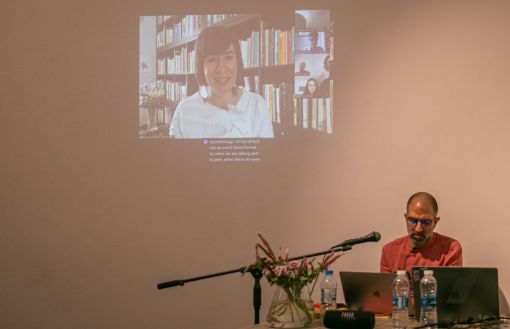
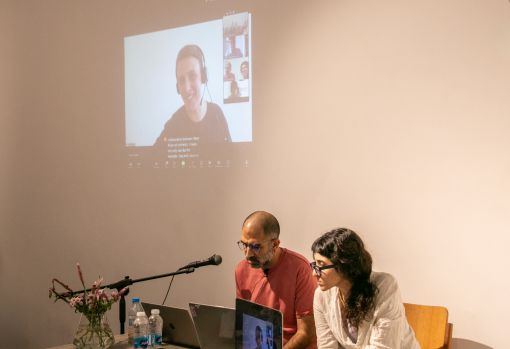
The final day featured a live conversation between curator Fereshte Moosavi and Helmut Draxler, professor of Art Theory (Emerita) at Merz Academy, Stuttgart, that brought the diverse threads of the previous days’ contributions to a close. Drawing from Draxler’s seminal texts, they examined the curatorial not just as a profession but as a critical and pedagogical methodology. They reflected on the ongoing “crisis of curating,” where mediation becomes both the symptom and tool of systemic failure. This conversation reaffirmed curating as an act situated between theory and action, past and future.
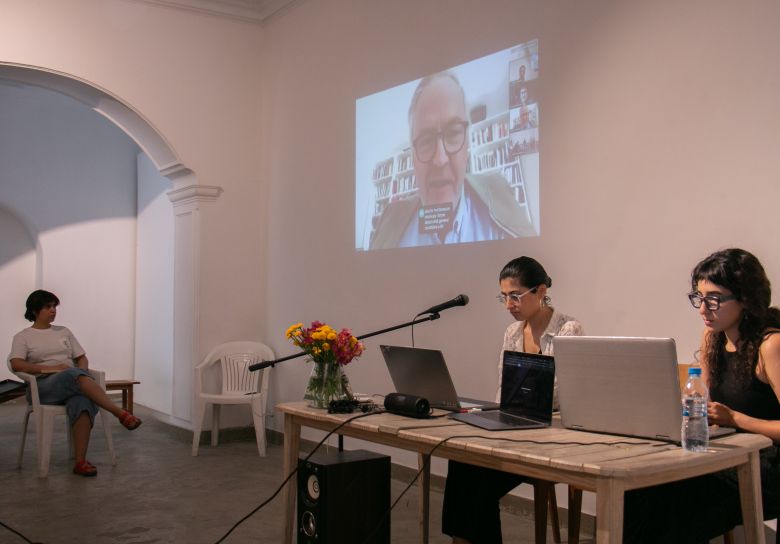
Tehran Curatorial Symposium, co-founded by Fereshte Moosavi and Charsoo Honar, is taking place since May 2017, fostering dialogue on global curatorial issues. To read more about the previous editions of the symposium, please visit www.mmoossaavvii.com.